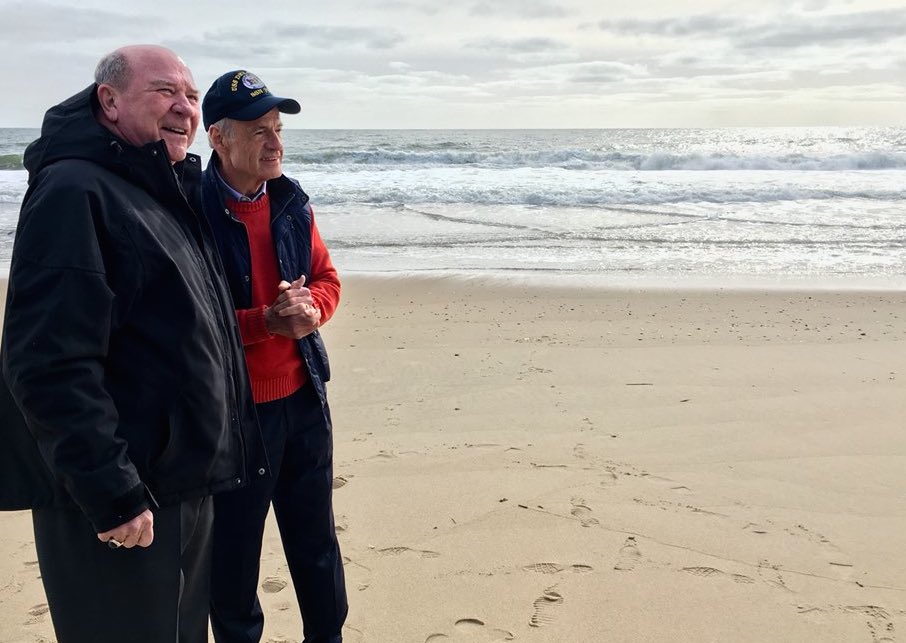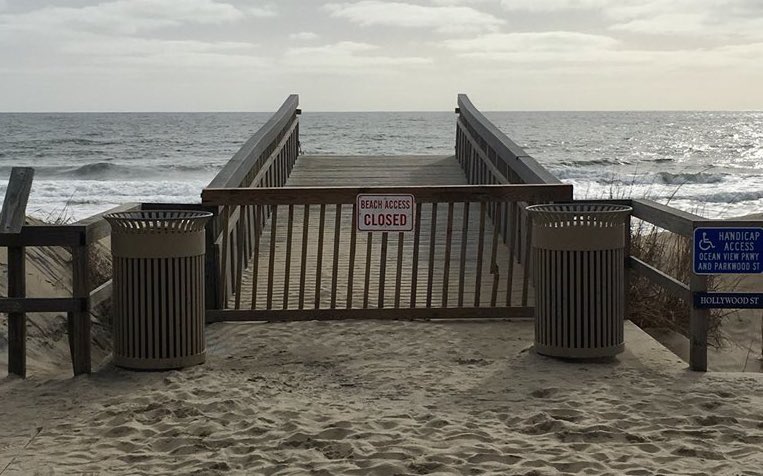- April 2, 2018
Keeping Delaware’s coast healthy and productive
 Last week, I welcomed Assistant Secretary of the Army for Civil Works, R.D. James, to Delaware for a day-long tour of our state – starting with our beaches and ending at our port. Recently confirmed to his position overseeing the Army Corps of Engineers, Delaware was Secretary James’s first stop to see the vital partnership that exists between the Army Corps and Delaware’s coastal communities. From our beaches in Sussex County, to the Port of Wilmington, water infrastructure is at the heart of Delaware’s economy, bringing in tourism and business that supports economic activity in every community across the First State.
Last week, I welcomed Assistant Secretary of the Army for Civil Works, R.D. James, to Delaware for a day-long tour of our state – starting with our beaches and ending at our port. Recently confirmed to his position overseeing the Army Corps of Engineers, Delaware was Secretary James’s first stop to see the vital partnership that exists between the Army Corps and Delaware’s coastal communities. From our beaches in Sussex County, to the Port of Wilmington, water infrastructure is at the heart of Delaware’s economy, bringing in tourism and business that supports economic activity in every community across the First State.
The Army Corps of Engineers isn’t just another branch of the Army. Part military, part civilian, the Army Corps works with communities in every state to maintain waterways and ports through dredging and shoreline management, monitor dam safety and help rebuild beaches to insulate communities from rising seas and growing storms. The Army Corps’s mission is critical to the economy of most states, and Delaware is no exception. That’s why I was pleased that the Army Corps received increased funding for its waterways management programs and beach renourishment activities in the fiscal year 2018 spending bill that Congress approved late last week.
 In the morning, Secretary James and I toured Bethany Beach where recent storms – including four Nor’easters in the past month alone – have washed away dozens of feet of beach and dunes, leaving coastal homes and businesses exposed to the next storm surge, limiting available beach space for the coming summer months and threatening the local economy. Working with Delaware’s Department of Natural Resources and Environmental Control (DNREC), the Army Corps is set to rebuild the protective dunes and recreational areas of Bethany Beach in the coming months, restoring it to the healthy environmental system it’s been in years past.
In the morning, Secretary James and I toured Bethany Beach where recent storms – including four Nor’easters in the past month alone – have washed away dozens of feet of beach and dunes, leaving coastal homes and businesses exposed to the next storm surge, limiting available beach space for the coming summer months and threatening the local economy. Working with Delaware’s Department of Natural Resources and Environmental Control (DNREC), the Army Corps is set to rebuild the protective dunes and recreational areas of Bethany Beach in the coming months, restoring it to the healthy environmental system it’s been in years past.
After touring Bethany Beach, we drove the ten miles north to Rehoboth Beach. A little more than a year ago, the Army Corps renourished Rehoboth’s dunes and beachfront, giving Rehoboth’s businesses and homes their protective dunes back and extending the beach from just 25 feet to more than 100 feet of buffer space from the ocean that doubles as recreational space. Showing Secretary James the contrast between a depleted beach and a healthy beach drove home the importance of the Army Corps’s work and close partnership with our communities.
Partnering with the Army Corps to rebuild healthy beaches is a great investment for our beach communities, but also increases tourism and activity that helps keep the national economy moving. Beachgoers from across the region may stop in Georgetown for lunch or at the Christiana mall for vacation necessities on their way to the beach; they buy bananas that are brought in from the port of Wilmington and eat chicken raised in Milford. With the Army Corps’s help, we have been able to build and maintain a bustling economy across the First State.
In the afternoon, we visited the Port of Wilmington, where the Army Corps’s annual dredging activities let ships from around the world dock and move 6.8 million tons of cargo every year. Recently, Delaware purchased land three miles north of the current port, in Edgemoor, with the intent of turning that into a second terminal for the port. With the right investments, and continued partnership with the Army Corps, the Edgemoor terminal will help double the productivity of the Port of Wilmington, creating hundreds of direct jobs and spurring hundreds of millions of dollars in economic development and growth across the First State. I was glad Secretary James could see the abandoned concrete slabs we are turning into a modern, thriving port terminal. Knowing the challenge that lies ahead of us, I’m confident in the partnership we have built with the Army Corps of Engineers to keep our coast healthy and our port productive.
Working closely with the Army Corps, leveraging federal investments like those made in our beaches and our port, while continuing the work we’re doing to protect our environment, our economy and every Delawarean will benefit for generations to come.